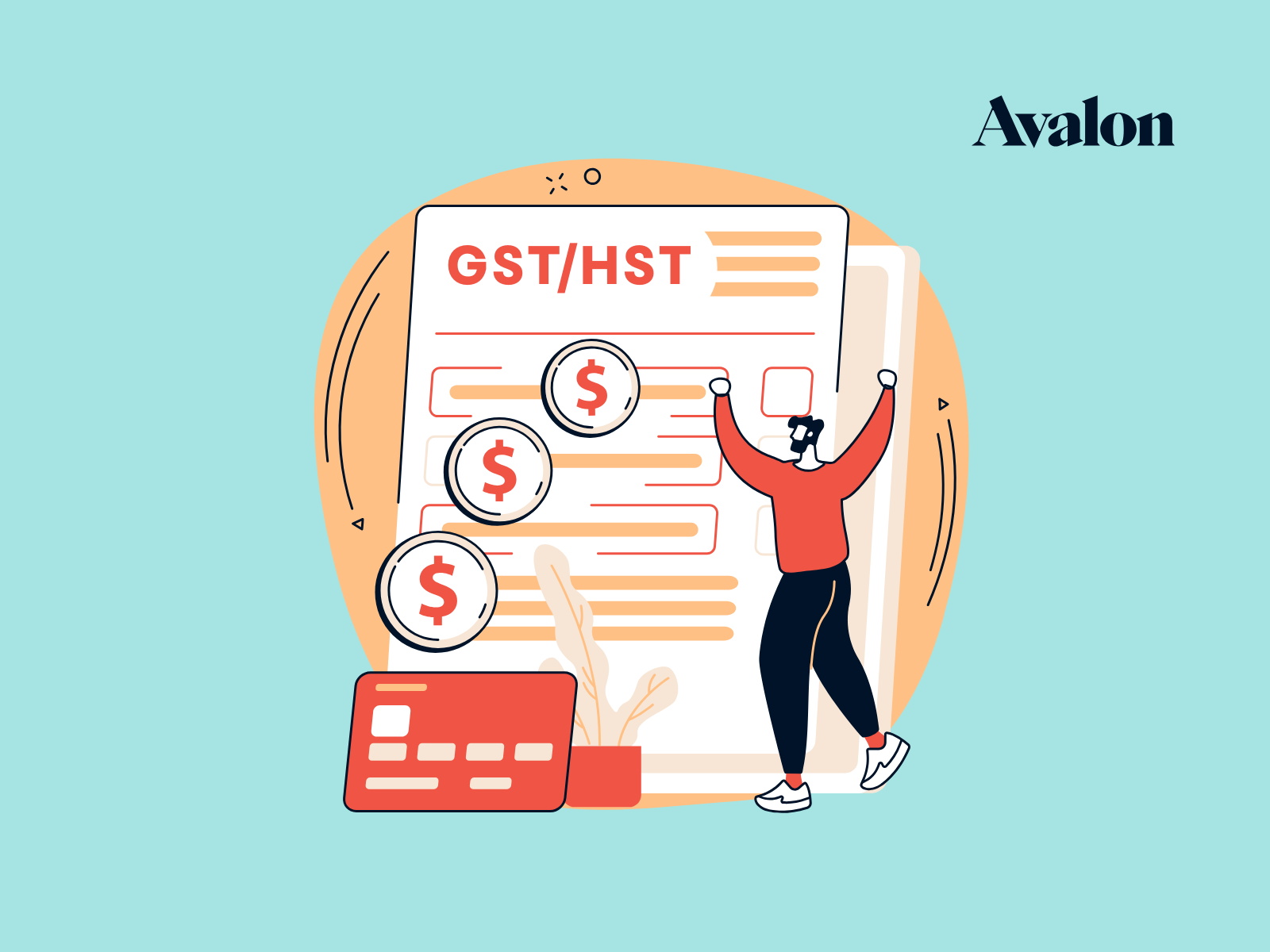Let them eat cake! (but make sure they pay the appropriate taxes and source deductions)

In this article we explain the tax implications of employee gifts and bonuses. We’ll look at the different kinds of gifts and their tax treatment for both the employer and employee.
Gifts Can Improve Employee Morale
The team here at Avalon have all filled out a survey to show what their appreciation language is.
Some people prefer words of affirmation so we try to always say “Great Jorb!” when we’re appreciating their work.
For other workers, though, the language of gifts is more up their alley.
For this reason, we’ve implemented an Avalonian gift giving program where we cover the cost for team members to send gifts to each other to show their appreciation.
It’s just a small thing but it’s lots of fun for team members to get a surprise pumpkin spiced latte at their door on a random Tuesday.
The point I’m getting to is that gift giving, whether around the holidays or not, is a great way to improve the team’s morale and create employee satisfaction.
If you’re giving gifts to your team around the holidays, it’s important to understand the tax implications and any steps you might need to take to make sure you stay compliant.
Cash Gifts
We’ll start with cash gifts because that’s a common one around the holidays and usually the most popular type of gift for employees to receive!
Tax Treatment For the Business
Giving an employee a cash bonus, whether it’s a performance-based bonus or a Christmas gift, will result in a deduction for the business.
Tax Treatment For the Employee
It will also be a taxable benefit for the employee. This means that the gift will be included in the employee’s income in the year that it was received.
Payroll Obligations
The employer will also need to calculate the payroll tax withholdings on this taxable benefit.
These payroll deductions are then remitted to the CRA in exactly the same way that they do with the employee’s regular wages.
So, it’s important to understand that you’re actually giving your employee a dollar amount that is net of payroll deductions.
For example if you want your employee to receive $200 as a gift, you would have to calculate the gross amount and then subtract the appropriate amount of payroll deductions so you arrive at a net payment of $200.
You can use your payroll software or the CRA payroll deductions calculator to make this calculation.
The gross amount of the gift and employee source deductions both get included on the employee’s T4 at the end of the year.
From this we can see that the $200 gift might actually cost more like $300 for the business so it’s good to keep this in mind when giving out cash gifts or bonuses.
Cash Gifts Summary
- For the Business - Cash gifts are a tax deduction for the business.
- For the Employee - The gross amount of the gift is taxable for the employee.
- Payroll Remittances - Payroll remittances (CPP, EI and Income Tax) must be calculated on the gross amount of the gift and remitted to the Receiver General.
- Employee T4 - You’ll need to include the gross amount of the gift and source deductions withheld on the employee’s annual T4.
Non-Cash Gifts
Next up we’ll look at non-cash gifts, or “stuff” as I like to call it.
For the Business
When giving stuff to employees, the business will get a tax deduction for the cost of the gifts that were purchased.
If that “stuff” falls under the category of “meals and entertainment” then it’s only 50% tax deductible for the business.
For the Employee
What about for employees? Is a non-cash gift a taxable benefit?
The official line from CRA on stuff is that a gift or award given to an employee is a taxable benefit from employment…
…Except for an exemption for non-cash gifts and awards in some cases.
So what are those “some cases” CRA is talking about where the gift is not a taxable benefit?
- First, to be considered for the exemption, the gift must be for a special occasion such as a religious holiday, a birthday, a wedding, the birth of a child, etc.
- Secondly, the gift can only qualify for the exemption if the fair market value of the gift is $500 or less.
You might be thinking you could get around this by buying multiple $499 gifts for your employees, but CRA has already thought of that.
The rule is actually that the combined fair market value of all non-cash gifts given to an employee in a given year can’t exceed $500 for the gift not to be considered a taxable benefit.
If the fair market value of the non-cash gifts given to an employee in a year is greater than $500, then the taxable benefit is calculated as the total fair market value minus $500.
So if you gave an employee $600 worth of gifts, then the taxable benefit would be $100 ($600 - $500).
Payroll Obligations
This taxable benefit also has to go on the employee’s T4, but you only need to withhold and remit CPP and income tax. No EI deductions for non-cash gifts.
Small or Trivial Amounts
One last thing on non-cash gifts.
Items of “small or trivial” value don’t have to be included in the total fair market value calculation.
If you have an employee who loves collecting coffee mugs and company t-shirts then you might be dealing with a hoarder, but at least they won’t have to include the value of those gifts as taxable income.
Non-Cash Gifts Summary
- For the Business - They’re deductible for the business but only 50% deductible if the gift is classified as “meals and entertainment”
- For the Employee Less Than $500 - They’re not taxable for employees if the total value received in a year is less than $500.
- For the Employee Greater Than $500 - Once you’ve hit $500 of gifts in a year, non-cash gifts are taxable income for employees. Only the amounts over $500 are included as taxable benefits.
- Payroll Remittances - In the case where there is a taxable benefit for the employee, the business has to remit CPP and income tax, but not EI.
- Employee T4 - Any amounts that are taxable benefits must be included on the employee’s T4 for the year. The source deductions withheld and remitted also must be included.
Bet you didn’t realize gift giving was so complicated!
Gift Certificates
Ok well if cash gifts sound like a bit more work than expected, what about gift certificates? And we’ll use “gift certificates” and “gift cards” to mean the same thing here.
As of January 1, 2022, gift certificates as employee gifts are a bit more complicated.
There are two common scenarios for gift certificates:
- Gift certificates considered “non cash”
- Gift certificates considered “near cash”
The tax treatment of non-cash gift certificates is the same as for non-cash gifts.
The tax treatment of “near cash” gift certificates is the same as for cash gifts.
So then, how do you tell the difference between non-cash and near cash?
Non Cash Gift Certificates
A gift certificate is considered “non cash” when all of the following apply:
- It comes with money already on it and can only be used to purchase goods or services from a single retailer or a group of retailers identified on the card
- The terms and conditions of the gift card clearly state that amounts loaded to the card cannot be converted into cash
- A log is kept to record gift card information containing the name of the employee, date the gift card was provided to the employee, reason for the gift, type of gift card amount of gift card and name of the retailer.
For example, Avalon Accounting buys its employee a gift certificate for Sweet Impressions Bakery for less than $500 that can only be used to purchase goods or services and can’t be converted to cash.
The gift certificate can be treated as a non-cash gift provided they keep a log containing the information noted above.
Near Cash Gift Certificates
If a gift certificate does not meet all of the non-cash criteria, then it is treated the same way as cash.
For example, Avalon Accounting buys its employee a prepaid mastercard for the amount of $250. The Mastercard can be used at any retailer that accepts credit cards.
Because the gift certificate can be used at multiple retailers, it does not meet all of the non-cash criteria and must be treated the same as a cash gift.
Gift Certificates Summary
- Non-cash Gift Certificates - If they meet all of the non-cash criteria noted above, gift certificates are treated the same as non-cash gifts.
- Near-cash Gift Certificates - If they do not meet all of the criteria noted above, the gift certificates are treated the same as cash gifts.
Staff Parties
The last topic that we’ll look at is staff parties.
Staff get-togethers can be a fun way of showing appreciation for your employees and a great way to do some team building.
For the Business
Staff parties fall under the tax treatment of “meals and entertainment”. In general, only 50% of meals and entertainment costs are deductible as a business.
However, there are some cases where the cost can be fully deducted. The main requirement for the staff event to be fully deductible is that it is open to all employees in the organization.
If the event was just open to some of the group, like a management retreat for example, it would only be 50% deductible.
There can be up to 6 events per year that are considered 100% deductible.
For Employees
The staff parties are not considered to be taxable benefits for employees unless the cost of the event is greater than $150 per person. If the cost of the event is greater than $150 per person, then the entire amount is considered a taxable benefit for the employee.
For virtual events, the per-employee threshold goes down to $50.
Clearly CRA’s take is “let’s have fun, but not THAT much fun.”
Payroll Obligations
Any taxable benefit (when the per person cost is over $150 or over $50 for virtual events) gets included on the employee’s T4. You’ll also have to remit CPP and income tax but not EI.
Staff Parties Summary
- For the Business (General) - In general, meals and entertainment costs are 50% deductible for the business.
- For the Business (All Staff) - If the entire staff is invited, you can deduct 100% of the costs. You can do that up to 6 times per year.
- For the Employee - It’s not a taxable benefit to your employees unless the per-person cost is over $150 for an in-person gathering or over $50 for a virtual gathering.
- Payroll Remittances - If there is a taxable benefit to employees, then CPP and income tax need to be remitted for employee taxable benefits but not EI.
- Employee T4 - If you go over the cost threshold, then the full per-person cost needs to be added to your employee’s taxable income and T4.
Recommendation
After all of that, we recommend not to worry too much about all of that. Show your employees that you appreciate their work in whatever way suits them or your business. Recognition goes a long way to creating a positive work environment.












